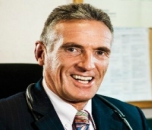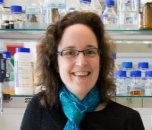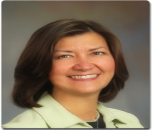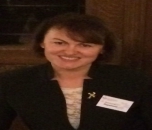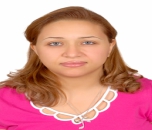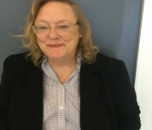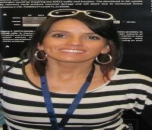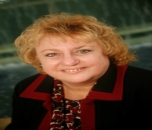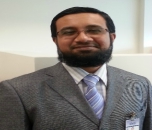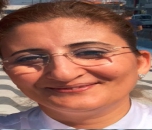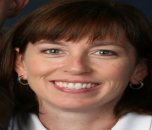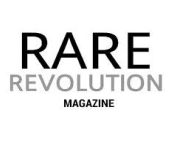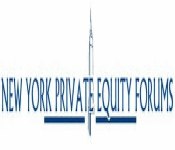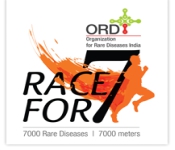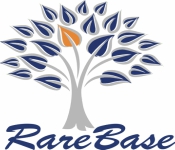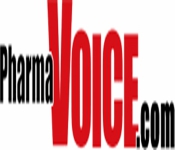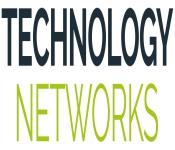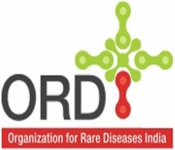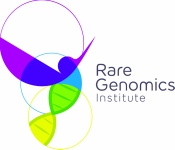Theme: Platform to share new treatments and research for Rare Diseases
Rare Diseases 2017
Track 1: Different types of Rare Diseases
Rare Disease is technically defined as a disease that is found in fewer than 5 people per every 10,000 people. While we’ve all heard of diseases, seen someone with a disease, and had a disease personally, it’s unlikely that we’ve encountered a rare disease. In the non-medical world, people use and interchange disease to mean infection, sickness, illness, or something similar. In the medical world, a disease is an abnormal condition that impairs bodily functions and is often associated with certain signs and symptoms. Also called an orphan disease, most rare diseases are genetic, and thus are present throughout the person's entire life, even if symptoms do not immediately appear.
Related Conferences: International Congress on Infectious Diseases May 11-12, 2017, Barcelona, Spain; 5th International Congress on Bacteriology and Infectious Diseases May 25-26, 2017, Chicago, USA; 3rd World Congress on Rare Diseases June 29-30, 2017, London, UK; 3rd International Conference on Retroviruses and Novel Drugs July 27-28, 2016, Vancouver, Canada; 4th Euro-Global Conference on Infectious Diseases September 7-9, 2017, Paris, France; Rare Diseases Europe; Rare Disorders Society; BPSU – Rare; Canadian Society for Mucopolysaccharide and Related Diseases; Rare Diseases UK, Rare Diseases South Africa, Students 4 Rare Diseases, National Organization for Rare Disorders; American Association of Pharmaceutical Scientists
Track 2: Clinical Research and Public Awareness
Clinical research is a branch of healthcare science. The first step in tackling this challenge is regularly getting the public to think about participating in clinical research. People need to consider how they can help advance the prevention, diagnosis, and treatment of disease. It is never too early to consider participation whether or not someone ultimately chooses to join a study.
Related Conferences: International Congress on Infectious Diseases May 11-12, 2017, Barcelona, Spain; 5th International Congress on Bacteriology and Infectious Diseases May 25-26, 2017, Chicago, USA; 3rd World Congress on Rare Diseases June 29-30, 2017, London, UK; 3rd International Conference on Retroviruses and Novel Drugs July 27-28, 2016, Vancouver, Canada; 4th Euro-Global Conference on Infectious Diseases September 7-9, 2017, Paris, France; American Pediatric Society; Society for Pediatric Research; ESPR European Society for Paediatric Research; The Latin American Society for Pediatric Research; Pediatric Academic Societies; Rare Diseases UK, Rare Diseases South Africa, Students 4 Rare Diseases, National Organization for Rare Disorders; American Association of Pharmaceutical Scientists
Track 3: Mystery Diagnosis of Rare Diseases
Diagnostic error in medicine is common. For example, a study from an intensive care unit demonstrated nearly 20% discordance between the clinically-defined cause of death and findings at post-mortem examination. Not surprisingly; therefore, the diagnosis of rare diseases is often delayed. Rare diseases affect an estimated 2-4 percent of the population. These diseases often have a genetic basis, either as uncommon recessive conditions or as the result of “de novo” genetic mutations not present in either parent. They can take varied and often debilitating form.
Related Conferences: International Congress on Infectious Diseases May 11-12, 2017, Barcelona, Spain; 5th International Congress on Bacteriology and Infectious Diseases May 25-26, 2017, Chicago, USA; 3rd World Congress on Rare Diseases June 29-30, 2017, London, UK; 3rd International Conference on Retroviruses and Novel Drugs July 27-28, 2016, Vancouver, Canada; 4th Euro-Global Conference on Infectious Diseases September 7-9, 2017, Paris, France; American Society of Human Genetics; European Society of Human Genetics; Japan Society of Human Genetics; Genetic Society in China; Indian Society of Genetics; Society for Pediatric Research; ESPR European Society for Paediatric Research; The Latin American Society for Pediatric Research; Uveitis Society of India Oculoplastics Association of India; Strabismological Society of India
Track 4: Challenges in Rare Diseases Treatment
There are approximately 7,000 rare diseases, which from a regulatory perspective are defined as those diseases where there are less than 200,000 patients in the US or that affect no more than five in 10,000 of the general population in the EU. "Orphan drugs" are medicinal products intended for diagnosis, prevention or treatment of life-threatening or debilitating rare diseases. They are "orphans" because the pharmaceutical industry has little interest under normal market conditions in developing and marketing drugs intended for only a small number of patients suffering from very rare conditions.
Related Conferences: International Congress on Infectious Diseases May 11-12, 2017, Barcelona, Spain; 5th International Congress on Bacteriology and Infectious Diseases May 25-26, 2017, Chicago, USA; 3rd World Congress on Rare Diseases June 29-30, 2017, London, UK; 3rd International Conference on Retroviruses and Novel Drugs July 27-28, 2016, Vancouver, Canada; 4th Euro-Global Conference on Infectious Diseases September 7-9, 2017, Paris, France; American Society of Clinical Oncology; American Cancer Society; European society of Pediatric Hematology Oncology; Indian Cancer Society; European Society of Surgical Oncology; European Oncology Nursing Society; Canadian Cancer Society; European Society for Therapeutic Radiology and Oncology; American Society of Clinical Oncology; European Society of Gynecological Oncology; European Society of Surgical Oncology
Track 5: Rare Infectious Diseases and Immune Deficiencies
Worldwide, about one-third of human deaths are attributable to infections. In addition, the so-called non-infectious causes of death often have a cryptic infectious etiology. Many Rare diseases caused by infectious agents rather than genetic or environmental factors.
Related Conferences: International Congress on Infectious Diseases May 11-12, 2017, Barcelona, Spain; 5th International Congress on Bacteriology and Infectious Diseases May 25-26, 2017, Chicago, USA; 3rd World Congress on Rare Diseases June 29-30, 2017, London, UK; 3rd International Conference on Retroviruses and Novel Drugs July 27-28, 2016, Vancouver, Canada; 4th Euro-Global Conference on Infectious Diseases September 7-9, 2017, Paris, France; American Academy of Ophthalmology; American Association for Paediatric Ophthalmology; European Society of Surgical Oncology; European Oncology Nursing Society; Canadian Cancer Society; European Society for Therapeutic Radiology and Oncology; American Society of Clinical Oncology; European Society of Gynecological Oncology; European Society of Surgical Oncology
Track 6: Rare Diseases in Cancer
Rare cancers tend to be caused by simple genetic mutations, and common cancers tend to be caused by a complex set of genetic and epigenetic aberrations that continually increase in number as the tumor develops. All cancers that can be cured when in an advanced clinical stage are rare cancers. Rare cancer syndromes typically produce various types of cancers, including rare cancers and common cancers.
Related Conferences: International Congress on Infectious Diseases May 11-12, 2017, Barcelona, Spain; 5th International Congress on Bacteriology and Infectious Diseases May 25-26, 2017, Chicago, USA; 3rd World Congress on Rare Diseases June 29-30, 2017, London, UK; 3rd International Conference on Retroviruses and Novel Drugs July 27-28, 2016, Vancouver, Canada; 4th Euro-Global Conference on Infectious Diseases September 7-9, 2017, Paris, France; Endocrine Society; American Association of Clinical Endocrinologists; The American Association of Endocrine Surgeons; Association of Program Directors in Endocrinology, Diabetes and Metabolism; Society for Endocrinology; Brazilian Society of Surgical Endocrinology; Academy of Medical-Surgical Nurses; Academy of Neonatal Nursing; Alliance for Psychosocial Nursing; American Association of Nurse Life Care Planners; Canadian Society for Mucopolysaccharide and Related Diseases; Rare Diseases UK, Rare Diseases South Africa, Students 4 Rare Diseases, National Organization for Rare Disorders; American Association of Pharmaceutical Scientists
Track 7: Rare Diseases in Aging
Aging is a collection of degenerative changes that occur in organisms that lack the ability to perpetually regenerate. Age is a major risk factor for most common neurodegenerative diseases. Dementia becomes more common with age. The spectrum includes mild cognitive impairment, Alzheimer's disease, cerebrovascular disease, Parkinson's disease and Lou Gehrig's disease. Rare diseases provide much insight into the cellular processes that hasten the aging process.
Related Conferences: International Congress on Infectious Diseases May 11-12, 2017, Barcelona, Spain; 5th International Congress on Bacteriology and Infectious Diseases May 25-26, 2017, Chicago, USA; 3rd World Congress on Rare Diseases June 29-30, 2017, London, UK; 3rd International Conference on Retroviruses and Novel Drugs July 27-28, 2016, Vancouver, Canada; 4th Euro-Global Conference on Infectious Diseases September 7-9, 2017, Paris, France; International Society on Aging and Disease; Aging and Society; American Society on Aging; International Genetic Epidemiology Society; Italian Association for the Defence of the Interests of Diabetics; Rare Diseases UK, Rare Diseases South Africa, Students 4 Rare Diseases
Track 8: Orphan Drugs- development trends and strategies
The growth of pharma industries has slowed in recent years because of various reasons such as patent expiries, generic competition, drying pipelines, and increasingly stringent regulatory guidelines. Many blockbuster drugs will lose their exclusivity in next 5 years. Therefore, the current economic situation plus the huge generic competition shifted the focus of pharmaceutical companies from the essential medicines to the new business model — niche busters, also called orphan drugs.
Related Conferences: International Congress on Infectious Diseases May 11-12, 2017, Barcelona, Spain; 5th International Congress on Bacteriology and Infectious Diseases May 25-26, 2017, Chicago, USA; 3rd World Congress on Rare Diseases June 29-30, 2017, London, UK; 3rd International Conference on Retroviruses and Novel Drugs July 27-28, 2016, Vancouver, Canada; 4th Euro-Global Conference on Infectious Diseases September 7-9, 2017, Paris, France; Academy of Medical-Surgical Nurses; Academy of Neonatal Nursing; Alliance for Psychosocial Nursing; American Academy of Ambulatory Care Nursing; American Association of Nurse Life Care Planners; Canadian Society for Mucopolysaccharide and Related Diseases; Rare Diseases UK, Rare Diseases South Africa, Students 4 Rare Diseases, National Organization for Rare Disorders; American Association of Pharmaceutical Scientists
Track 9: Clinical Research on Orphan Drugs
A clinical trial is a medical study conducted to test the effects of a new or already existing drug, of a biological treatment or of a medical device that might treat or curb a disease already identified. The main goal of a clinical trial is to compare two or several groups of subjects, by using two or several treatments in order to determine the efficacy of a drug or of a biological treatment.Clinical trials are carefully and ethically conducted in order to protect patients against unwanted adverse reactions and to allow collection and accurate analysis of the information concerning the disease.
Related Conferences: International Congress on Infectious Diseases May 11-12, 2017, Barcelona, Spain; 5th International Congress on Bacteriology and Infectious Diseases May 25-26, 2017, Chicago, USA; 3rd World Congress on Rare Diseases June 29-30, 2017, London, UK; 3rd International Conference on Retroviruses and Novel Drugs July 27-28, 2016, Vancouver, Canada; 4th Euro-Global Conference on Infectious Diseases September 7-9, 2017, Paris, France; Academy of Medical-Surgical Nurses; Academy of Neonatal Nursing; Alliance for Psychosocial Nursing; American Academy of Ambulatory Care Nursing; American Association of Nurse Life Care Planners; Canadian Society for Mucopolysaccharide and Related Diseases; Rare Diseases UK, Rare Diseases South Africa, Students 4 Rare Diseases, National Organization for Rare Disorders; American Association of Pharmaceutical Scientists
Track 10: Orphan Drugs and Ethical Issues
This track outlines the moral dilemma of funding orphan drug research and development. To date, ethical aspects of priority setting for research funding have not been an issue of discussion in the bioethics debate. Conflicting moral obligations of beneficence and distributive justice appear to demand very different levels of funding for orphan drug research. The two types of orphan disease, rare diseases and tropical diseases, however, present very different ethical challenges to questions about allocation of research funds. The dilemma is analysed considering utilitarian and rights based theories of justice and moral obligations of non-abandonment and a professional obligation to advance medical science. The limitations of standard economic evaluation tools and other priority setting tools used to inform health policy decision makers on research funding decisions are outlined.
Related Conferences: International Congress on Infectious Diseases May 11-12, 2017, Barcelona, Spain; 5th International Congress on Bacteriology and Infectious Diseases May 25-26, 2017, Chicago, USA; 3rd World Congress on Rare Diseases June 29-30, 2017, London, UK; 3rd International Conference on Retroviruses and Novel Drugs July 27-28, 2016, Vancouver, Canada; 4th Euro-Global Conference on Infectious Diseases September 7-9, 2017, Paris, France; International society of Hematology; American Society of Hematology; European society of Hematology; British Society of Hematology; European society of Pediatric Hematology Oncology; Academy of Medical-Surgical Nurses; Academy of Neonatal Nursing; Alliance for Psychosocial Nursing; American Association of Nurse Life Care Planners; Canadian Society for Mucopolysaccharide and Related Diseases; Rare Diseases UK, Rare Diseases South Africa, Students 4 Rare Diseases, National Organization for Rare Disorders; American Association of Pharmaceutical Scientists
Track 11: Future Hereditary of Rare Diseases and Orphan Drugs
Work over the past 25 years has resulted in the identification of genes responsible for ~50% of the estimated 7,000 rare monogenic diseases and it is predicted that most of the remaining disease-causing genes will be identified by the year 2020 and probably sooner. This marked acceleration is the result of dramatic improvements in DNA-sequencing technologies and the associated analyses. We examine the rapid maturation of rare-disease genetic analysis and successful strategies for gene identification. We highlight the impact of discovering rare-disease-causing genes, from clinical diagnostics to insights gained into biological mechanisms and common diseases. Last, we explore the increasing therapeutic opportunities and challenges that the resulting expansion of the 'atlas' of human genetic pathology will bring.
Related Conferences: International Congress on Infectious Diseases May 11-12, 2017, Barcelona, Spain; 5th International Congress on Bacteriology and Infectious Diseases May 25-26, 2017, Chicago, USA; 3rd World Congress on Rare Diseases June 29-30, 2017, London, UK; 3rd International Conference on Retroviruses and Novel Drugs July 27-28, 2016, Vancouver, Canada; 4th Euro-Global Conference on Infectious Diseases September 7-9, 2017, Paris, France; Academy of Medical-Surgical Nurses; Academy of Neonatal Nursing; Alliance for Psychosocial Nursing; American Academy of Ambulatory Care Nursing; American Association of Moderate Sedation Nurses; American Association of Nurse Life Care Planners; Canadian Society for Mucopolysaccharide and Related Diseases; Rare Diseases UK, Rare Diseases South Africa, Students 4 Rare Diseases, National Organization for Rare Disorders; American Association of Pharmaceutical Scientists
Track 12: Entrepreneurs Investment Meet
A platform aimed to connect Entrepreneurs, Proposers and the Investors worldwide. It's intended to create and facilitate the most optimized and viable meeting place for engaging people in global business discussions, evaluation and execution of promising business ideas. An investor could be able to find out the highest potential investment opportunities globally, which provide good return on investment. For entrepreneurs, this would be an ideal place to find out suitable investors and partners to start and/or expand their business. Thus it is a perfect place to connect Entrepreneurs, Business Owners, Early Stage Companies and Established Corporates with National or International Investors, Corporate Investors and Potential Business Partners.
Related Conferences: International Congress on Infectious Diseases May 11-12, 2017, Barcelona, Spain; 5th International Congress on Bacteriology and Infectious Diseases May 25-26, 2017, Chicago, USA; 3rd World Congress on Rare Diseases June 29-30, 2017, London, UK; 3rd International Conference on Retroviruses and Novel Drugs July 27-28, 2016, Vancouver, Canada; 4th Euro-Global Conference on Infectious Diseases September 7-9, 2017, Paris, France; American Society of Clinical Oncology; American Cancer Society; European society of Pediatric Hematology Oncology; Indian Cancer Society; European Society of Surgical Oncology; European Oncology Nursing Society; Canadian Cancer Society; European Society for Therapeutic Radiology and Oncology; American Society of Clinical Oncology; European Society of Gynecological Oncology; European Society of Surgical Oncology
Importance and Scope
There are over 7,000 classified rare diseases and 70% of them have no form of treatment, there are considerable unmet needs in this area. Regulatory benefits such as longer market exclusivity, breakthrough designations, reduced fees and tax incentives are all encouraging investment. However, the marketing process and lifecycle for a rare disease drug are very different to a mass market product and require particular skills and knowledge.
Rare Diseases-2017 will be the best platform for all the specialists and super specialists, renowned Scientists, research scholars, students who are working in this field across the globe under a single roof to exchange their knowledge related to Rare Diseases and Orphan Drugs. This international event is an effort to find an alternative for invasive imaging technique against diseases like haemophilia, cystic fibrosis, lupus, motor neurone disease, acromegaly, Fragile X syndrome, Gaucher’s disease and Gorlin’s syndrome, as well as many others.
ConferenceSeries Ltd welcomes all the specialists and super specialists, research scholars, industrial professionals and student delegates from biomedical and healthcare sectors to be a part of the esteemed Rare Diseases-2017. It also catalyses for information exchange and networking between researchers and business entrepreneurs of diverse backgrounds for the advancement of Technology and Research in the field of Rare Diseases. As this will be the best amalgamation of academia and research involving every aspect of empirical and conceptual thinking in exploring new dimensions in this field. It is open to all types of research methodologies both from academia and industry.
Why San Antonio?
San Antonio officially the City of San Antonio, is the seventh most populated city in the United States of America and the second most populated city in the state of Texas, with a population of 1,409,019. It was the fastest growing of the top 10 largest cities in the United States from 2000 to 2010, and the second from 1990 to 2000. The city is located in the American Southwest, the south–central part of Texas, and the southwestern corner of an urban region known as the Texas Triangle.
San Antonio hosts over 100,000 students in its 31 higher-education institutions. Publicly supported schools include the University of Texas Health Science Center at San Antonio, the University of Texas at San Antonio, Texas A&M University–San Antonio, and the Alamo Community College District. The University of Texas at San Antonio is San Antonio's largest university
Conference Highlights
· Different types of Rare Diseases
· Clinical Research and Public Awareness
· Mystery Diagnosis of Rare Diseases
· Challenges in Rare Diseases Treatment
· Rare Infectious Diseases and Immune Deficiencies
· Orphan Drugs, Development trends and strategies
· Clinical Research on Orphan Drugs
· Orphan Drugs and Ethical Issues
· Future Hereditary and Rare Diseases e-Prospects of Rare Diseases
Why to attend?
In today's economic climate your business decisions are as crucial as ever. “3rd Annual Congress on Rare Diseases and Orphan Drugs” allow you to maximize your time and marketing dollars while receiving immediate feedback on your new products and services. 3rd Annual Congress on Rare Diseases and Orphan Drugs is organizing an outstanding Scientific Exhibition/Program and anticipates the world's leading specialists involved Rare Diseases and Orphan Drugs. Your organization will benefit with excellent exposure to the leaders in Rare Diseases and Orphan Drugs. Rare Diseases-2017 is an exciting opportunity to showcase the new technology, the new products of your company, and/or the service your industry may offer to a broad international audience.
Target Audience
Specialists and super specialists, researchers, students, industrial delegates from Academia and Research along with the industrial professionals from biomedical companies and healthcare sectors.
A Unique Opportunity for Advertisers and Sponsors at this International event: http://rarediseases.conferenceseries.com/sponsors.php
Statistics of Researchers, Academicians and Industrial
Major Associations Worldwide
· Canadian Organization for Rare Diseases (CORD)
· National Alliances for Rare Diseases
· Organization for Rare Diseases India (ORDI)
· The Boler-Parseghian Center for Rare & Neglected Diseases
· Cystic Fibrosis Foundation
· National Organization for Rare Diseases (NORD)
· European Union Committee of Experts on Rare Diseases
· Multiple Myeloma Research Foundation
· U.S. Food and Drug Administration
· RARE Foundation Alliance
· Birmingham children’s Hospital (NHS Foundation Trust)
· Japan Patient Association
· EURORDIS Rare Diseases Europe
· Royal Society of Medicine
· EveryLife Foundation for Rare Diseases
· Global Genes Allies in Rare Diseases
· Rare Diseases South Africa
· Short Bowel Syndrome Foundation
· Rare Diseases or Syndromes and Clinical Societies
· Rare Diseases Patient Association Funding
· Rare Disorders Society Singapore
· Guardian Hands Foundation
· IRDR Intractable & Rare Diseases Research (Europe)
Top Universities Worldwide
· Harvard University
· University of Oxford
· University of Cambridge
· Rare Genomics Institute
· GMEC, The Global Medical Excellence Cluster
· University of Zurich
· Stanford University
· Cambridge University
· Yale University
· Emory University
· Karolinska University
· John Hopkins University
· Newcastle University
· University of Pittsburgh Study
· University of Valencia
· Osaka University
· McMaster University
Hospitals Associated with Rare Diseases Research Worldwide
· The Manton Center for Orphan Disease Research (Boston, USA)
· US hospital for rare disease research (USA)
· NORD (National Organization for Rare Disorders) (USA)
· Chicago Rare Disease Foundation (Chicago, USA)
· National Institute of Health (NIH) funds research consortia to study more than 200 rare diseases (USA)
· Children’s hospital of Pittsburgh (Center for Rare Disease Therapy) (USA)
· Boston Children’s Hospital (The Manton Center for Orphan Disease Research) (Boston, USA)
· Birmingham children’s Hospital (NHS Foundation Trust) (UK)
· The Children’s Hospital of Philadelphia (USA)
Industries Associated with Rare Diseases Research Worldwide
· Novartis (Switzerland)
· Pfizer (USA)
· Roche (Switzerland)
· Onyx Pharmaceuticals
· Amicus Therapeutics
· Sarepta Therapeutics
· Prosensa
· Sanofi (France)
· Merck & Co. (USA)
· Swedish Orphan Biovitrum AB
· Genzyme
· AstraZeneca (UK)
· GlaxoSmithKline
· Vertex Pharmaceuticals
· NPS Pharmaceuticals
· Shire
· Johnson & Johnson (USA)
· ViroPharma
· Sigma-Tau Pharmaceuticals
· ViroPharma
· European Medicines Agency
· Takeda (Japan)
· Aegerion Pharmaceuticals
· Novo Nordisk (Denmark)
· Cancer Prevention Pharmaceuticals
· Roche
· PharmaMar USA
· Raptor Therapeutics
· Daiichi Sankyo (Japan)
· Araim Pharmaceuticals
· Octapharma USA
· Gilead sciences (USA)
· Millennium Pharmaceuticals
· Actavis (USA)
· Amgen (USA)
· Glaxosmithkline (UK)
· Bayer HealthCare (Germany)
Glance at Market analysis report
Summary GBI Research, the leading business intelligence provider, has released its latest research “Orphan Disease Therapeutics Market to 2018 – Improved Understanding of Rare Diseases’ Heterogeneity and Novel New Clinical Trial Designs to Foster Innovation”, which provides insights into the orphan disease therapeutics market until 2018. It includes the geographical distribution of Fabry, Pompe, Mucopolysaccharidosis VI, Idiopathic Thrombocytopenic Purpura, Huntington’s disease and Ovarian cancer markets across the US, the top five countries of Europe and in Japan. The report provides competitive benchmarking for the leading companies and also analyses the mergers, acquisitions and licensing agreements that shape the global markets. GBI Research’s analysis shows that the overall global orphan disease therapeutics market is expected to grow at a significant compound annual growth rate (CAGR) of 13.1% from $2.3 billion 2010 to $6 billion in 2018 in the US, the top five countries of Europe and Japan. Increasing awareness of the disease and drugs among patients and physicians, patent protection and exclusivity of Nplate and Promacta for ITP market, anticipated launch of new molecules such as ACR-16, AMR-101 and HD-02 for the treatment of HD and the approval of Avastin for the treatment of advanced ovarian cancer in Europe will drive the global orphan disease therapeutics market in the forecast period.
Annualized market data for the orphan diseases therapeutics market from 2004 to 2010, forecast forward to 2018.- Analysis of the leading therapeutic segments. These include Fabry Disease, Pompe Disease and Mucopolysaccharidosis VI, Idiopathic Thrombocytopenic Purpura, Huntington’s disease and Ovarian Cancer.- Analysis of the orphan diseases therapeutics market in the leading geographies of the world, which include the US, the UK, Germany, France, Italy, Spain, and Japan – Market characterization of the orphan diseases therapeutics market including market size, annual cost of therapy, and treatment usage patterns – Key drivers and barriers that have a significant impact on the market – Coverage of pipeline molecules in various phases of drug development – Competitive benchmarking of leading companies. The key companies studied in this report are Genzyme Corporation, Shire Plc and Biomarin - Key M&A activities, licensing agreements that have taken place between 2010 and 2011 in the global orphan diseases therapeutics market.
The 2013 Orphan Drug Report from Evaluate, which launched today at the 2013 BIO international Convention, sheds light on the market dynamics of orphan drugs — pharmaceutical products aimed at rare diseases or disorders — projecting that sales will experience a compound annual growth rate of 7.4 percent between 2012 and 2018, nearly double that of the prescription drug market, excluding generics. The report based on EvaluatePharma® data found that the worldwide orphan drug market is set to reach $127 billion by 2018, doubling that of the overall prescription drug market.
Market Growth of Rare Diseases Research
GBI Research’s analysis shows that the overall global orphan disease therapeutics market is expected to grow at a significant compound annual growth rate (CAGR) of 13.1% from $2.3 billion 2010 to $6 billion in 2018 in the US, the top five countries of Europe and Japan.
The 2013 Orphan Drug Report from Evaluate, which launched today at the 2013 BIO international Convention, sheds light on the market dynamics of orphan drugs — pharmaceutical products aimed at rare diseases or disorders — projecting that sales will experience a compound annual growth rate of 7.4 percent between 2012 and 2018, nearly double that of the prescription drug market, excluding generics. The report based on Evaluate Pharma data found that the worldwide orphan drug market is set to reach $127 billion by 2018, doubling that of the overall prescription drug market
The global orphan drugs market reached $84.9 billion in 2009 growing from $58.7 billion in 2006 from $54.5 billion in 2005.The market is expected to grow at a compound annual growth rate (CAGR) of nearly 6% to reach $112.1 billion by 2014.The U.S. accounted for 51% of the market in 2009 and is expected to grow at a CAGR of 8.9% to reach $65.9 billion by 2014.By 2020, orphan drugs will own 19% of the total share of prescription drug sale excluding generics, reaching a whopping $176 billion in annual sales, according to Andreas Hadjivasiliou, an analyst with Evaluatepharma.
Fund Allotment to Rare diseases Research
Since 1989, NORD’s research grants have resulted in at least two FDA-approved products and the publication of numerous significant journal articles. Our more than 100 disease-specific research funds are supported primarily by patients and patient organizations. Industry support is welcome and would demonstrate commitment to the study of diseases for which there are few-if any- other sources of funding.
NORD's Research Program provides seed money grants to academic scientists for clinical studies related to the development of diagnostics or treatments of rare diseases. Requests for proposals are posted once a year in the late winter or early spring. NORD's Research Program also includes the NORD/Roscoe Brady Lysosomal Storage Diseases Fellowships.
Physician scientists at 22 consortia will collaborate with representatives of 98 patient advocacy groups to advance clinical research and investigate new treatments for patients with rare diseases. The collaborations are made possible through awards by the National Institutes of Health — totalling about $29 million in fiscal year 2014 funding — to expand the Rare Diseases Clinical Research Network (RDCRN), which is led by NIH’s National Center for Advancing Translational Sciences (NCATS).
References
http://www.raredisorders.ca/index.html
http://www.ncbi.nlm.nih.gov/pmc/articles/PMC2996062/
http://www.ncbi.nlm.nih.gov/pmc/articles/PMC2996062/
http://www.mmm-online.com/features/therapeutic-focus-rare-diseases/article/394333/
After the overwhelming success of the previous conference in 2016, Conference Series officially announcing “3rd Annual Congress on Rare Diseases and Orphan Drugs†in collaboration with Organization for Rare Diseases India(ORDI) and Rare Genomics Institute along with Editorial Board Members, External Scientific Association, Researchers, Academicians, and Pharmaceutical Market Leaders around the globe, scheduled on October 30-November 1, 2017 San Antonio, USA.
Rare Diseases 2017 is a global platform to discuss and learn about Rare Diseases like haemophilia, cystic fibrosis, lupus, motor neurone disease, acromegaly, Fragile X syndrome, Gaucher’s disease, Gorlin’s syndrome and idiopathic disorders, rare genetic diseases, Orphan Drugs, Alzheimer’s Disease and many more.
Target Audience
- Â Professors
- Â Specialists
- Â Researchers
- Â Students
- Â Industrial delegates
- Â Academia and Research
- Â Biomedical companies
- Â Healthcare Professionals
Conference Highlights
- Different types of Rare Diseases
- Clinical Research and Public Awareness
- Mystery Diagnosis of Rare Diseases
- Challenges in Rare Diseases Treatment
- Rare Infectious Diseases and Immune Deficiencies
- Orphan Drugs- development trends and strategies
- Clinical Research on Orphan Drugs
- Orphan Drugs and Ethical Issues
- Future Hereditary of Rare Diseases and Orphan Drugs
- Entrepreneurs Investment Meet
- Rare Diseases in Cancer
- Rare Diseases in Aging
- Patient organizations and their role in drug development or clinical research
To share your views and research, please click here to register for the Conference.
To Collaborate Scientific Professionals around the World
| Conference Date | October 30-31, 2017 | ||
| Sponsors & Exhibitors |
|
||
| Speaker Opportunity Closed | Day 1 | Day 2 | Day 3 |
| Poster Opportunity Closed | Click Here to View | ||
Useful Links
Special Issues
All accepted abstracts will be published in respective Our International Journals.
- Journal of Clinical Trials
- Journal of Genetic Syndromes & Gene Therapy
- Journal of Neurological Disorders
Abstracts will be provided with Digital Object Identifier by







